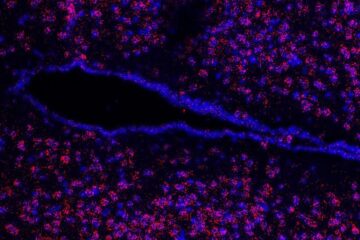Anti-aging hormone reduces reactive oxygen species

Scientists recently discovered an anti-aging hormone called Klotho. Now, a new study shows that this protein acts by increasing the cell’s ability to detoxify harmful reactive oxygen species. The research appears as the “Paper of the Week” in the November 11 issue of the Journal of Biological Chemistry, an American Society for Biochemistry and Molecular Biology journal.
The klotho gene, named after the Greek goddess who spins life’s thread, is associated with preventing aging in mammals. The klotho gene product, or Klotho protein, is secreted in the blood and functions as an anti-aging hormone. A defect in the klotho gene in mice leads to a syndrome closely resembling human aging, while overexpression of the gene extends lifespan in mice.
Now Makoto Kuro-o, assistant professor of pathology at the University of Texas Southwestern Medical Center at Dallas, has discovered one way in which Klotho extends lifespan. Using both cultured cells and transgenic mice, the researchers showed that Klotho increases resistance to oxidative stress.
“Increased longevity is always associated with increased resistance to oxidative stress,” explains Kuro-o. “Oxidative stress causes the accumulation of oxidative damage to important biological macromolecules such as DNA, lipids, and proteins that would result in functional deterioration of the cell, which eventually causes aging.”
“In this study,” says Kuro-o, “we propose that Klotho does its job by increasing the ability of the cell to detoxify harmful reactive oxygen species, thereby increasing resistance to oxidative stress of the body.” The protein acts by turning on an enzyme called manganese superoxide dismutase. This enzyme, found in the mitochondria of the cell, then hydrolyzes harmful superoxide into less harmful hydrogen peroxide.
This research may eventually lead to the development of anti-aging drugs, a long-standing goal of many pharmaceutical companies. “We showed that the anti-aging hormone Klotho confers resistance to oxidative stress in cells and animals,” says Kuro-o. “This means that Klotho protein itself or small molecule mimetics may be potentially useful as anti-aging medicines.”
Media Contact
All latest news from the category: Life Sciences and Chemistry
Articles and reports from the Life Sciences and chemistry area deal with applied and basic research into modern biology, chemistry and human medicine.
Valuable information can be found on a range of life sciences fields including bacteriology, biochemistry, bionics, bioinformatics, biophysics, biotechnology, genetics, geobotany, human biology, marine biology, microbiology, molecular biology, cellular biology, zoology, bioinorganic chemistry, microchemistry and environmental chemistry.
Newest articles

Roadmap to close the carbon cycle
A holistic approach to reach net-zero carbon emissions across the economy. A major approach to achieving net-zero carbon emissions relies on converting various parts of the economy, such as personal…

Cost-effective, high-capacity, and cyclable lithium-ion battery cathodes
Charge-recharge cycling of lithium-superrich iron oxide, a cost-effective and high-capacity cathode for new-generation lithium-ion batteries, can be greatly improved by doping with readily available mineral elements. The energy capacity and…

New regulator of eating behaviour identified
The rapidly escalating prevalence of overweight and obesity poses a significant medical challenge worldwide. In addition to people’s changing lifestyles, genetic factors also play a key role in the development…





















